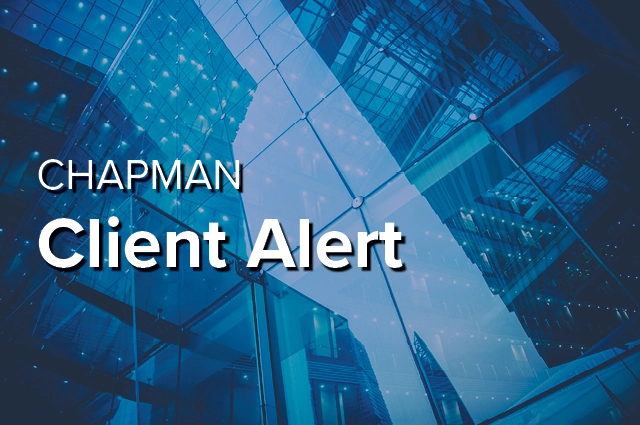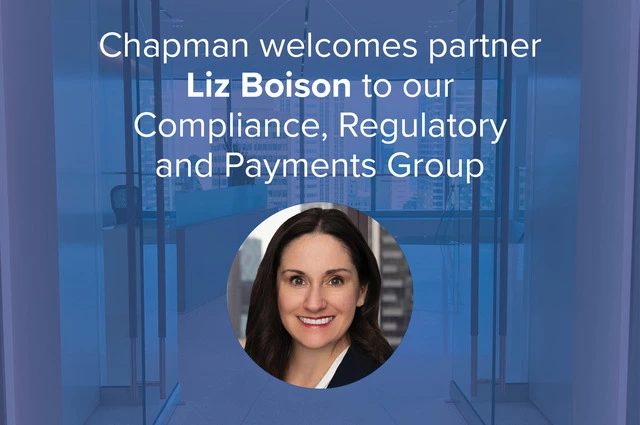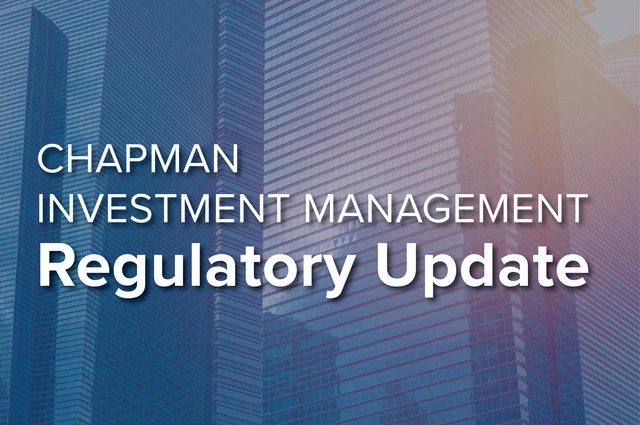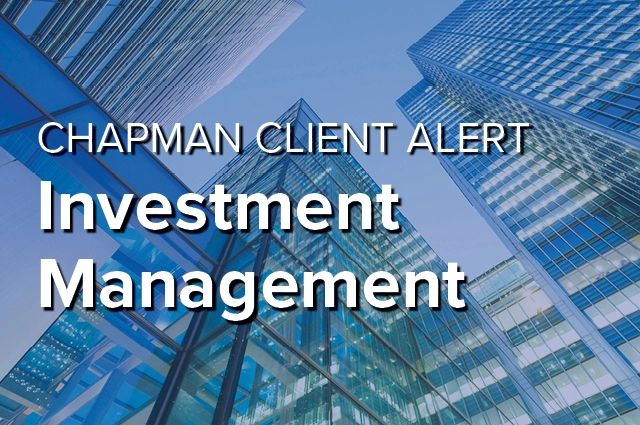- Topic: Insurance Companies
16 matches.
The NAIC’s multi-year process of modifying its accounting rules to confirm which debt instruments qualify as bonds for regulatory accounting purposes is of interest to insurance companies that use rated notes issued by feeder funds to facilitate their investments in private credit funds. This Chapman Insights article addresses the scope and current status of those modifications and the impact of those modifications on such rated notes.
As originally discussed in our 2019 Action Item, the continuing, low interest rate environment has caused many insurance companies to turn to private credit funds to diversify their credit portfolios and increase their returns. Private credit funds that offer insurance companies the opportunity to participate in their funds indirectly through a rated-debt feeder fund structure provide insurance companies an opportunity to lower their risk-based capital requirements when compared with investing directly in such credit funds. As discussed in our 2021 Chapman Insights, investing in private credit funds through a rated-debt feeder structure is not without legal complexities, but many insurance companies have found those complexities to be worth the regulatory capital relief that may be available by investing through a rated-debt feeder structure.
- LexisNexis Practical Guidance
On April 13, the Department of Labor released guidance on the prohibited transaction exemption pertaining to fiduciary investment advice for retirement investors, employee benefit plans and investment advice providers.
Investor interest in rated-debt feeder funds has grown since we first issued our Action Item concerning such funds in March 2019. We expect this interest to continue as the private credit market expands through the COVID-19 crisis.
Insurance companies continue to look to alternative investment funds as a means to increase returns in this low interest rate environment and to add diversification to their portfolios. One impediment to increasing a concentration in alternative investments may be the higher risk-based capital requirements associated with alternative investments. Recently, various participants in the insurance, alternative investment, and rating agency industries have considered addressing that risk-based capital impediment by utilizing a bespoke rated-debt feeder fund structure.
In a break from other recent circuit court decisions, the Fifth Circuit ruled that amounts due under a make-whole provision contained in a note purchase agreement constituted unmatured interest and were not permitted to be paid to a creditor under the Bankruptcy Code.
The United States Court of Appeals for the Second Circuit has affirmed the district court and the bankruptcy court’s determinations in MPM Silicones, LLC that Momentive’s senior noteholders are not entitled to recover any make-whole premium on account of the replacement of their notes.
- October 19, 2017 (Originally Published October 4, 2017)
On September 21, a Bankruptcy Court ruled that holders of notes issued pursuant to a Note Purchase Agreement entered into by a debtor’s operating subsidiary were entitled to what the court termed an ‘enormous’ make-whole payment, post-petition interest, and recovery of related fees and expenses.
In a decision that deals a potential blow to holdout noteholders in out-of-court restructurings, the United States Court of Appeals for the Second Circuit adopted a narrow interpretation of Section 316(b) of the Trust Indenture Act.
- May 2016ACIC Private Notes
Over the past several years, a number of public-private partnership transactions have been financed in the domestic and cross-border U.S. private placement market. Given the need for new infrastructure both domestically and abroad, we anticipate that the number of P3 transactions entering the U.S. private placement market will continue to rise over the coming years.
It is a basic principle in bankruptcy that a secured lender is entitled to receive interest and other charges arising post-petition to the extent the lender is over-secured. A recent decision challenges this principle in cases where the value of a lender’s collateral diminishes during the course of the bankruptcy case.
- Law360
A recent decision issued by a federal district court in North Carolina challenges the familiar principle that in a borrower’s bankruptcy, the lender, if it is oversecured as of the bankruptcy filing date, is entitled to receive post-petition interest, attorneys’ fees and other charges arising post-petition to the extent of the value of its collateral.
Retail bondholders recently filed two class action suits in the United States District Court for the Southern District of New York challenging exchange offers under the Trust Indenture Act.
On February 16, 2016, the District Court for the District of Delaware affirmed the decision of the Delaware bankruptcy court in In re Energy Future Holdings Corp., that noteholders’ claims for make-whole premiums may be blocked by the automatic stay of the U.S. Bankruptcy Code.
- Client Alert
Out-of-court debt restructurings may face greater hurdles to success in light of two recent federal court decisions out of New York broadly expanding dissenting bondholders’ rights under the Trust Indenture Act.
In order to maintain the global private placement market as an attractive market for both issuers and investors, the American College of Investment Counsel undertook to update its Model Form Note Purchase Agreement last year and released its Transaction Process Management Committee Updated Model X Form No. 2, draft dated April 15, 2014.









